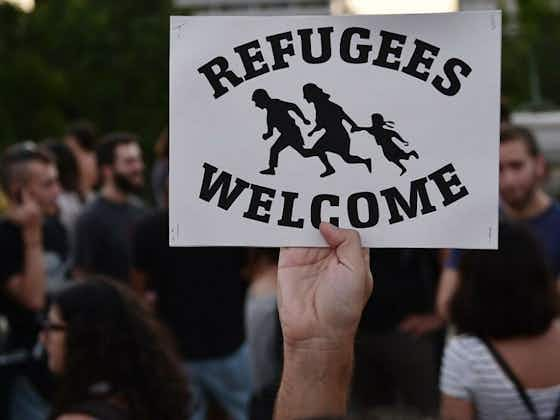OneFootball
Dan Burke·12 February 2020
🎥 Irish club Bohemians reveal superb 'Refugees Welcome' jersey

In partnership with
Yahoo sportsOneFootball
Dan Burke·12 February 2020

League of Ireland outfit Bohemian FC have announced a brilliant partnership with Amnesty International ahead of the new season.
The Dublin club will wear a jersey emblazoned with the words ‘Refugees Welcome’ as part of a campaign to highlight the poor living conditions facing many refugees under Ireland’s Direct Provision – the system used for processing asylum seekers entering the country since 2000.
The back of the shirt will also carry an anti-racism message.
“We’re delighted to unveil this very special shirt,” said Bohemians director Daniel Lambert.
“At the core of the Bohemian identity is inclusiveness and a desire to utilise football as a means to improve our society as a whole.
“This builds on a deep and lasting relationship we have built with the Movement of Asylum Seekers in Ireland (MASI) and through multiple engagements with people living in direct provision.”
Direct Provision – which often involves housing refugees in unsuitable conditions in former hotels in remote parts of the country – has been described by Amnesty International as “flawed” and a “human rights scandal”.
“Bohemian FC and their supporters have an incredible track record on social justice issues,” said Amnesty International Ireland’s executive director, Colm O’Gorman.
“We’ve long respected the practical solidarity they’ve shown people seeking asylum and refugees, so this is a fantastic opportunity to bring our supporters together to call for an end to Direct Provision.
“Direct Provision is an ongoing human rights scandal. The system is fundamentally flawed, trapping people for years in limbo and isolating them from communities in inhumane, institutionalised conditions.”


Live





























































